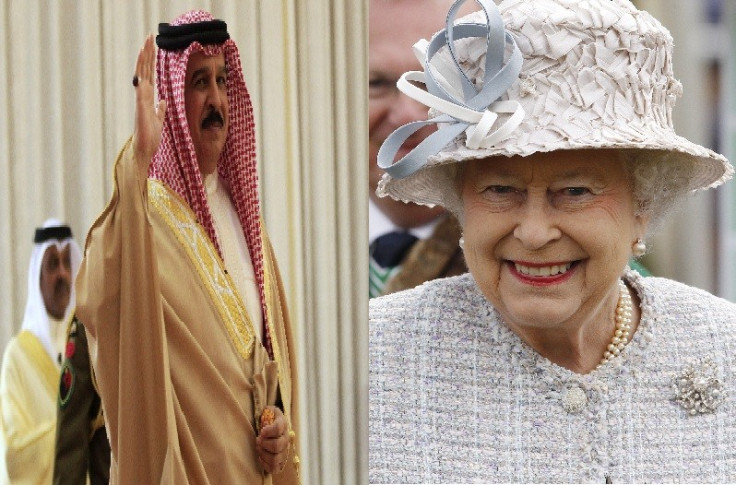Bahrain: Outrage as 'Baby-Killer' Sheikh Al Khalifa Set for Jubilee Lunch With Queen Elizabeth II
Human rights activists are planning protests at Windsor Castle and Buckingham Palace to protest alleged invitation of "dictator monarchs".

Human rights activists are planning protests at Windsor Castle and Buckingham Palace to protest the alleged invitation of "dictator monarchs".
Pro-democracy campaigners are angered that the King of Bahrain, Sheikh Hamad ibn Isa Al Khalifa, King Abdullah of Saudi Arabia, the King of Swaziland, Mswati III and the Sultan of Brunei have been invited to join the royal family for a lunch at Windsor Castle in celebrating the Queen's Diamond Jubilee.
The main protests however will be in opposition to the King of Bahrain's presence at the special event.
"Our reaction is one of disgust and outrage. We are appalled that a dictator, a baby-killer is invited to such a prestigious event," Dr Saeed Shehabi, a Bahraini activist based in London told IBTimes UK.
"This will only help legitimise him back in [Western] circles that are associated with decency and democracy."
"The regime is using chemical gas against the people and has killed demonstrators, whether men or women. The King's place should be in a dock".
For more than a year, opposition members and human rights activists in Bahrain have been protesting against the lack of political reform in the country.
Demonstrations were severely repressed in February and March 2011 King Hamad Al-Khalifa, with the opposition and activists saying more than 80 people have been killed in the violence.
Despite the King setting up the Bahrain Independent Commission of Inquiry to investigate reports of human rights violation by the regime's forces and make reforms recommendations, activists say abuses are on-going, including torture, excessive use of force and tear gas.
Activists and doctors have said several women have miscarried as results of the use of tear gas.
Several leading rights activists and professionals have been arrested since last year.
Prominent Bahraini rights activist Nabeel Rajab was recently charged with insulting the government on Twitter which he he denies saying: "I only used my right to free expression. I did not commit any crime."
The former president of the Bahrain Centre for Human Rights, Abdulhadi al-Khawaja is also being jailed since April 2011 and has been on a hunger strike in protest of his detention for more than 90 days.
Meanwhile a verdict on the case of 20 health professionals on trial in Bahrain is scheduled to be announced on 14 June.
The medics were charged with "illegal possession of firearms for a terrorist purpose", "attempting to occupy a public hospital using force" and "attempting to topple the system of government by force" for which they were sentenced prison terms of between five and 15 years.
They appealed their conviction and insist they were arrested for treated injured protesters, prompting Amnesty International to warn: "If convicted and imprisoned, all 20 would be prisoners of conscience."
On May 16 protesters also gathered in front of the prestigious Savoy hotel in London, where Swaziland's King Mswati III is believed to be staying.
The Swaziland ruler has been criticised for living in luxury while the rest of the population is subject to extreme poverty and recurrent food shortages.
© Copyright IBTimes 2024. All rights reserved.





